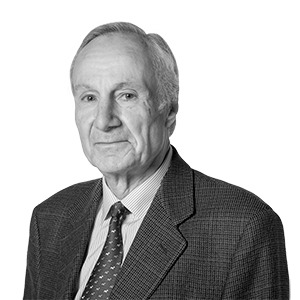

For several years now, difficulties in coexistence, arguments, and conflicts of all kinds, both social and economic, have been steadily increasing across the planet, even reaching warlike proportions. During the second half of the 20th century, in a significant portion of what we considered the developed world, we experienced economically prosperous and socially peaceful conditions. It is evident that this situation has been disrupted in recent decades, and there has been a growing concern about the causes, especially those that could be corrected, as they have been the result of conscious or unconscious human actions.
I'd like to make a few comments regarding the changes we've experienced in the world of information, a result of the technological advances of recent decades. I'll focus specifically on this area because I believe it's one of the most important and also the one that is surely having the greatest impact but is least perceived by many people.
1. Information and activity. We all act either because someone else forces us to, because we have no other alternative, or because we personally make the decision. The more we achieve the latter, the freer we feel. The decision depends on our goals, the information we have on the subject at hand, and we seek the expected consequences of what we do. All of this means that we are either under the control of another (slaves), or subject to legislation (members of a regulated society), or capable of deciding what we want based on what we know (free). It is very clear that what we know is a consequence of what we see and what we feel, that is, of all the information we receive. This is why the origin, rigor, and reliability of information are so important. Current technological changes modify the possibilities for creating and distributing information and affect our lives much more than we think. They can lead us to make unintentional but serious mistakes.
I am fully convinced that in recent years we have experienced negative and unpleasant situations, both from the perspective of electoral results and the debates on migration and personal behavior related to sustainability and climate change, which have been the result of an intense, and in many cases malicious, distribution by denialist individuals and governments that have made everyone take advantage.
2. Media, networks and AI. Without going into too much detail, I'll comment on four points to keep in mind when continuing to organize our societies to adapt to current technologies.
a) I am not in favor of censorship, as I believe in freedom of expression, but I think that when it comes to providing information, all media outlets should distinguish between information and opinion. It is clear that each media outlet can have its own bias in opinion, but they should clearly distinguish between the opinion of the person and that of the medium. In the case of the description of reality, they must distinguish between "rigorous," "biased," and "false." AI's ability to generate false reality means that we can now also add the desire to avoid lying. All of this can be called disinformationThe media is ultimately responsible for what it publishes and must control it.
b) In the case of social media, things get more complicated because those who express opinions are responsible for what they say, but they are also responsible for everything they claim as a depiction of reality. Social media must take partial responsibility for what is published and avoid clearly false, irresponsible, or hateful depictions. Things get even more complicated when it comes to somehow limiting access to certain types of people based on age. Governments must legislate.
c) For the past few centuries, societies, both developed and poor, have been under the domination of large financial complexes that controlled both money and natural resources. We have entered a new era in which the key to power lies with those who control information and data through the use of digital technologies and AI. Democratic governments themselves need them, both for peace and war. The US and the EU have tried, unsuccessfully, to place power in the hands of citizens. China and Russia, in one way or another, very different, control it from within their governments.
d) For all these reasons, it is urgent that the EU increase its united action in technology and geopolitics, and that the US stop following the selfish path of "Big America" and return to regulating jointly to prevent a small group of large "tech platforms" from continuing to control the creation and distribution of information.
